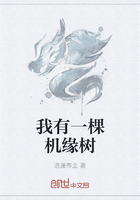"Thank you," responded Carl. "I have had a little practice in archery, and will enter my name for that prize."
He paid over his quarter and received back fifteen cents in change. It seemed rather an imprudent outlay, considering his small capital; but he had good hopes of carrying off the prize, and that would be a great lift for him.
Seven boys entered besides Carl. The first was Victor Russell, a lad of fourteen, whose arrow went three feet above the mark.
"The prize is mine if none of you do better than that," laughed Victor, good-naturedly.
"I hope not, for the credit of the club," said the president. "Mr. Crawford, will you shoot next?"
"I would prefer to be the last," said Carl, modestly.
"John Livermore, your turn now."
John came a little nearer than his predecessor, but did not distinguish himself.
"If that is a specimen of the skill of the clubmen," thought Carl, "my chance is a good one."
Next came Frank Stockton, whose arrow stuck only three inches from the center of the target.
"Good for Fred!" cried Edward Downie.
"Just wait till you see me shoot!"
"Are you a dangerous rival?" asked Carl, smiling.
"I can hit a barn door if I am only near enough," replied Edward.
"Edward Downie!" called the president.
Edward took his bow and advanced to the proper place, bent it, and the arrow sped on its way.
There was a murmur of surprise when his arrow struck only an inch to the right of the centre. No one was more amazed than Edward himself, for he was accounted far from skillful. It was indeed a lucky accident.
"What do you say to that?" asked Edward, triumphantly.
"I think the prize is yours. I had no idea you could shoot like that," said Carl.
"Nor I," rejoined Edward, laughing.
"Carl Crawford!" called the president.
Carl took his position, and bent his bow with the greatest care. He exercised unusual deliberation, for success meant more to him than to any of the others. A dollar to him in his present circumstances would be a small fortune, while the loss of even ten cents would be sensibly felt. His heart throbbed with excitement as he let the arrow speed on its mission.
His unusual deliberation, and the fact that he was a stranger, excited strong interest, and all eyes followed the arrow with eager attentiveness.
There was a sudden shout of irrepressible excitement.
Carl's arrow had struck the bull's-eye and the prize was his.
"Christopher!" exclaimed Edward Downie, "you've beaten me, after all!"
"I'm almost sorry," said Carl, apologetically, but the light in his eyes hardly bore out the statement.
"Never mind. Everybody would have called it a fluke if I had won," said Edward. "I expect to get the prize for the long jump. I am good at that."
"So am I, but I won't compete; I will leave it to you."
"No, no. I want to win fair."
Carl accordingly entered his name. He made the second best jump, but Edward's exceeded his by a couple of inches, and the prize was adjudged to him.
"I have my revenge," he said, smiling. "I am glad I won, for it wouldn't have been to the credit of the club to have an outsider carry off two prizes."
"I am perfectly satisfied," said Carl; "I ought to be, for I did not expect to carry off any."
Carl decided not to compete for any other prize.
He had invested twenty cents and got back a dollar, which left him a profit of eighty cents.
This, with his original quarter, made him the possessor of a dollar and five cents.
"My luck seems to have turned," he said to himself, and the thought gave him fresh courage.
It was five o'clock when the games were over, and Carl prepared to start again on his journey.
"Where are you going to take supper?" asked Downie.
"I--don't--know."
"Come home with me. If you are in no hurry, you may as well stay overnight, and go on in the morning."
"Are you sure it won't inconvenience you?"
"Not at all."
"Then I'll accept with thanks."















